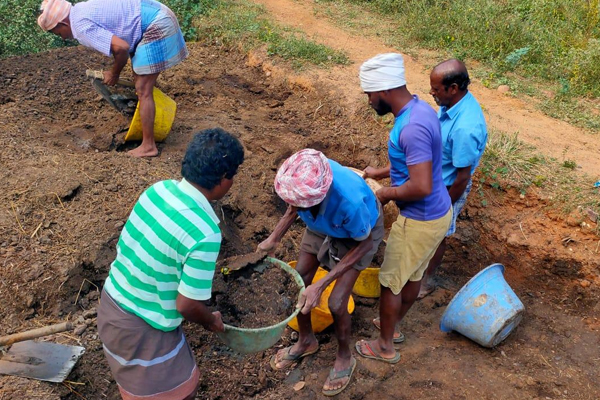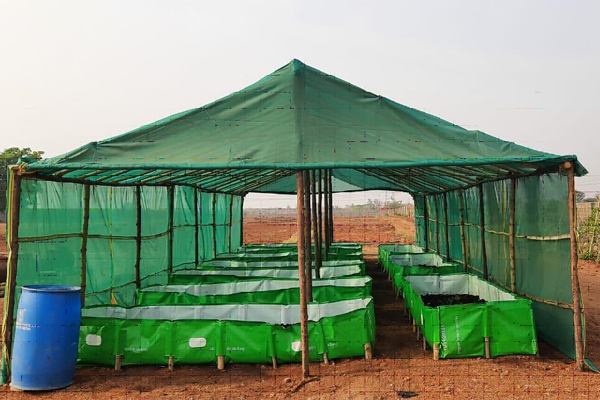Vermicomposting for Sustainable Soil Enrichment
Vermicomposting is a sustainable and eco-friendly method of composting that utilizes earthworms to break down organic waste materials into nutrient-rich compost. This process not only reduces the amount of waste sent to landfills but also produces a valuable resource for enhancing soil fertility and promoting plant growth.
Vermicompost acts as a bustling microcosm, hosting a diverse array of beneficial microorganisms. Nitrogen-fixing bacteria and mycorrhizal fungi work tirelessly to cycle nutrients, suppress diseases, and maintain overall soil health. Notably, vermicompost demonstrates weed-suppressing prowess, diminishing the need for herbicides and empowering sustainable practices. The environmental merits of vermicomposting are equally remarkable. By diverting organic waste from landfills, vermicomposting curbs methane emissions, contributing to waste management endeavors. Moreover, farmers employing vermicompost can reduce their reliance on synthetic fertilizers, effectively curbing their environmental impact. Scientific studies validate the potential of vermicomposting. Soil organic matter content witnesses a remarkable 20% boost with vermicompost application, fostering improved soil fertility. Crop yields soar by 25%, and nutrient availability skyrockets, as vermicompost exerts its magic on agricultural productivity.
The Reality of Chemical Farming
Chemical-intensive agriculture has been the norm in India for decades, with synthetic fertilizers and pesticides widely used to boost yields. However, this approach has taken a toll on soil health. According to a report by the Indian Council of Agricultural Research (ICAR), chemical farming has led to a decline in soil organic carbon and soil microbial diversity, impacting long-term productivity. Chemical farming in India has led to a decline in soil organic carbon by approximately 2.1% per year, nutrient imbalances, water pollution, soil erosion of 5.3 billion tons annually, nutrient depletion in 30% of agricultural soil, and health impacts from pesticide poisoning. FAO confirms that Chemical Agriculture is associated with “Farmers indebtedness for inputs and suicides”: reporting that there were 30,000 deaths in Maharashtra, India, from 1997-2005. [“Organic Agriculture’s Contribution to Sustainability” (April 2013)].
Why We Should Embrace Vermicomposting?
As the challenges of chemical farming become increasingly evident, the need for sustainable alternatives has gained significant attention. One such solution that holds promise is Vermicomposting. Vermicomposting is a promising alternative to chemical fertilisers in agriculture. Studies have shown that it significantly increases soil organic carbon levels by up to 20% compared to chemical fertilisers alone. It also improves nutrient availability in the soil, leading to enhanced crop growth and yield. Vermicompost promotes soil microbial diversity, which is essential for nutrient cycling and disease suppression.
The key advantage of Vermicompost is the easy absorption of nutrients by plant roots. It accelerates growth, increases crop yields, and creates a favourable environment for beneficial microorganisms. Vermicompost improves soil structure and ideal for organic farming and artificial environments.
By embracing vermicomposting, we can revitalise agricultural soil, combat the detrimental effects of chemical farming, and reduce reliance on harmful chemicals. It aligns with sustainable agriculture goals, allowing us to restore and maintain soil health while promoting resilient farming practices. Vermicomposting offers a viable solution for sustainable and productive agriculture in India.
References
- Indian Council of Agricultural Research (ICAR) – icar.org.in
- Journal of Soil Science and Plant Nutrition –
- Tamil Nadu Agricultural University – tnau.ac.in
- Journal of Environmental Quality –
- Food and Agriculture Organization (FAO) –www.fao.org


